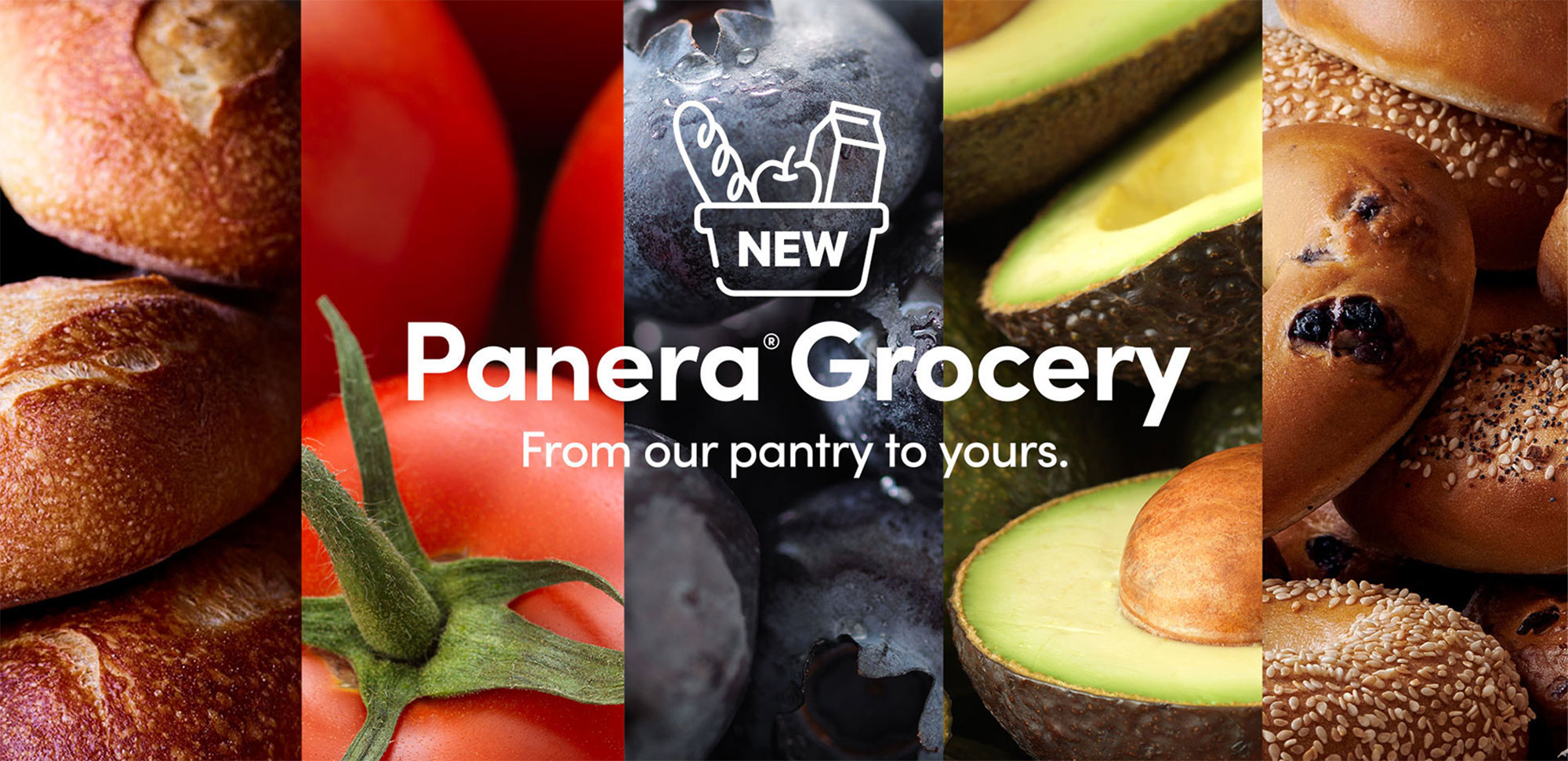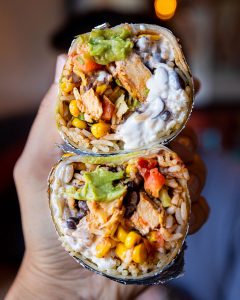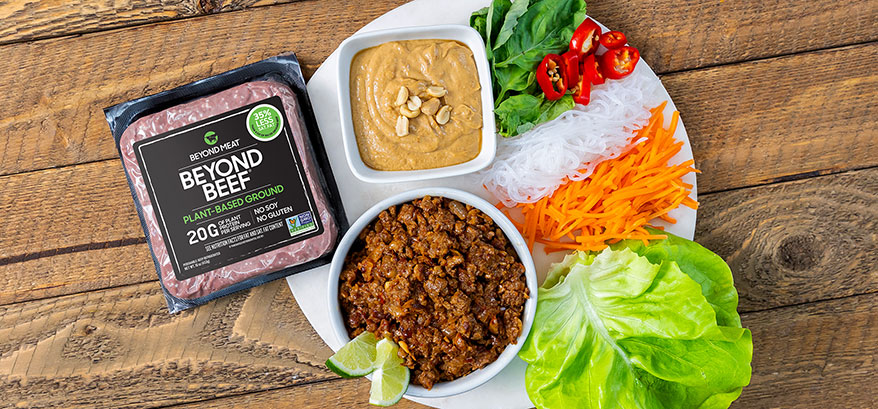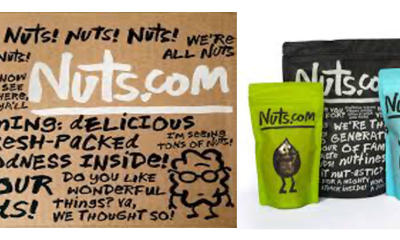
Top Food & Beverage Trends
A sampling of Innova’s top trends for the food and beverage markets in 2021.
Published
3 years agoon
PANERA ANNOUNCED THE launch of Panera Grocery on April 8, 2020, with an announcement from Niren Chaudhary, Panera’s CEO, expressing the role that consumer empathy played in the brand’s decision to pivot its business offerings and extend its brand. “From limited choices on grocery shelves to the growing need to limit the number of trips outside of the home, it is an incredibly stressful time when it comes to putting wholesome food on the table, and we knew Panera could help,” said Chaudhary.
Transparency Triumphs
The Innova Consumer Survey 2020 reveals that six in 10 global consumers are interested in learning more about their foods’ origins. Transparency dominates consumer demand in 2021. Increasing transparency to meet evolving ethical, environmental and clean label consumer demands is key.
Brands adopting and pairing smart and active packaging technologies such as invisible barcodes and near-field communication technology with creative, meaningful storytelling will be successful.
The consumer lifestyle trend toward cleaner living is broadening and heightening expectations around what constitutes a clean label. Aspects include human/animal welfare, supply chain transparency, plant-powered nutrition and sustainable sourcing.
BXP editors have observed these clean foods trends for a few years now, but the pandemic has certainly accelerated food brands’ moves to offering foods perceived as “clean” by consumers. To further solidify the movement, we are also seeing food service providers that have pivoted to more packaged goods offerings as demand for in-restaurant dining pales compared to pre-COVID-19 levels.
In April 2020, Panera announced its grocery service. By leveraging the existing Panera supply network of clean ingredients, the restaurant brand’s grocery service helps keep Panera top of mind for its loyal consumers by alleviating their concerns about the fragility of the food supply chain, and Panera is able to further reinforce its brand message as a social champion of clean food and healthy eating.
AdvertisementPlant-Forward
As plant-based trends reach global phenomenon status, the “plant-based” definition is ever-evolving. Its rising mainstream appeal will drive expansion to different regions and categories in 2021, including accelerated demand for new formats, plant proteins and more sophisticated alternatives.
Propelled by sustainability and animal welfare concerns, lab-grown foods can disrupt the industry by mainstreaming the use of new technologies. The Innova Consumer Survey 2020 indicated that the top four reasons for considering plant-based alternatives were health, diet variety, sustainability and taste.
As consumers are powering up on plant protein, opportunities and challenges relating to regional consumer preferences and sustainability expectations are attracting attention.
BXP editors have been watching the extraordinary brand acceptance and embrace of the Beyond Meat food brand by mass-market consumers of retail food outlets and fast-food restaurants. The Beyond Meat brand, created in 2009, has already become a household name. Most U.S. consumers not only recognize the Beyond Meat name but are familiar with and understand the brand’s mission:
Building “meat” directly from plants but doing so with innovation that enables consumers to experience the taste, texture and other sensorial attributes of popular animal-based meat products while enjoying the nutritional and environmental benefits of eating plant-based meat food.
Beyond Meat’s marketing strategy includes publishing a brand commitment, “Eat What You Love.” This trademarked statement represents the brand belief that by eating from its portfolio of plant-based proteins, consumers can enjoy more, not less, of their favorite meals, and by doing so, help address concerns related to human health, climate change, resource conservation and animal welfare.
AdvertisementThe brand’s success can also be measured by Beyond Meat’s retail placements. The brand’s portfolio of fresh and frozen plant-based proteins is sold at approximately 77,000 retail, restaurant and foodservice outlets in 65-plus countries as of December 31, 2019.
Tailored to Fit
Personalized nutrition is in the spotlight as consumers look for food and beverage options that fit their unique lifestyles. Consumers expect a tailored approach to eating, with technological breakthroughs, constant new launches and exciting sensorial experiences providing the opportunity for customized lifestyles to extend to food and beverage consumption.
Sophisticated personalized nutrition advice on functional foods is still expensive, but the emergence of tech platforms allows for comparable customer service via automation. The Innova Consumer Survey 2020 showed that 64% of global consumers had found more ways to tailor their life and products to their individual styles, beliefs and needs.
BXP editors saw this trend already in action when dietary supplement brand Baze introduced a new partnership with the frozen food brand Performance Kitchen in July 2020. Best known for developing a convenient, at-home blood test for assessing micro-nutrient deficiencies, Baze added Performance Kitchen’s food to its targeted nutrition program to deliver a more holistic and dynamic brand experience.
Baze claims its evidence-based approach can eliminate 73% of consumer’s nutrient deficiencies in just three months. Baze’s move to include food recommendations will now address the root cause of the issue—the need for more nutrient-dense diets.
“We believe this holistic approach in partnership with Performance Kitchen will result in even better results in achieving optimum nutrition and will also reshape how our customers think about food as tools for addressing their micro-nutrition needs,” says Baze CEO Philipp Schulte. “One thing that we are very aware of is that the current state of nutrition solutions was very fragmented, resulting in a lot of complexity, which makes it difficult for people to adopt and adhere to new diet habits. Our objective has been to bring together the worlds of personalized dietary supplements and actionable food solutions. A balanced nutrition plan that blends healthy nutrient-dense foods with tailored supplements will allow for a more holistic solution.”
AdvertisementNew Omnichannel Eating
Innova’s researchers note that as service and retail domains increasingly overlap, consumers can eat what they want, when and where they want it. Consumers are seeking convenience, richer experiences and affordable indulgences. Traditional hospitality is getting edged out, particularly with COVID-19 giving consumers more incentive to stay at home and sharpen their culinary skills.
Increased home cooking is driving the use of convenient meal kits/starters and more sophisticated ingredients, resulting in new food experiences. The Innova Consumer Survey 2020 found 46% of consumers believe restaurant-branded products are a convenient way to attain the restaurant experience and flavors at home.
Along with the restaurant-delivery market growing, consumers can now directly access many specialty products that were previously only accessible via foodservice.
One of the most successful examples BXP editors have seen is Moe’s Southwest Grill’s meal kit line. Founded in 2000 and based in Atlanta, Moe’s is a fast-casual restaurant franchise that serves high quality and fresh southwestern food. The Moe’s brand has become known for offering a variety of menu items that aim to please the entire family, whether they are from Gen X, Gen Z, or the baby boomer or alpha generations. As a restauranteur, Moe’s is a successful brand. Moe’s has been recognized as the Brand of the Year in the Fast-Casual Mexican Restaurant category for two years in a row by the 2016 and 2017 Harris Poll EquiTrend Studies.
In March, the brand pivoted its business model in response to the global COVID-19 pandemic by creating a packaged food kit to be sold by franchisees. The brand expanded its packaged meal kit offering from Taco Kits, initially released in March in response to the pandemic as a way to help families dine together at home, to also include Nacho and Fajita Meal Kits.

In March, Moe’s pivoted its business model in response to the global COVID-19 by creating a packaged food kit to be sold by franchisees.
Designed with families in mind, the packaged meal kits provide a full southwest spread serving four to six people and feature all the ingredients for each family member to create their own culinary masterpieces:
- Taco Kits: a choice of two proteins, tortillas, queso, beans, rice, lettuce, cheese, pico, sour cream, queso and chips.
- Nacho Kits: a choice of two proteins, beans, pico, jalapeños, sour cream, salsa, queso and chips.
- Fajita Kits: a choice of two proteins, tortillas, beans, rice, lettuce, cheese, pico, grilled peppers, grilled onions, guacamole, sour cream, queso and chips.
To help its customers make the most out of the leftovers and reduce food waste, Moe’s also includes a special recipe developed by chef Caroline Morris, vice president of menu management at Moe’s, in each packaged kit. These sustainability-minded recipes include Taco Kit Enchiladas, Fajita Kit Personal Pizzas and Nacho Kit Chilaquiles. The brand takes an omnichannel approach to sell the kits, as the packaged foods are available to order in-store, on Moes.com, and on the Moe Rewards app.
In Tune with Immune
Ongoing anxiety stemming from COVID-19 will encourage consumers to prioritize their immune health into 2021. According to the Innova Consumer Survey 2020, six out of 10 global consumers are increasingly looking for food and beverage products that support their immune health. One in three respondents said that concerns about immune health increased in 2020 over 2019.
Immunity-boosting ingredients will continue to attract consumers’ interest in the coming year, and research and interest in the role of the microbiome and personalized nutrition as ways to strengthen immunity will accelerate.
The BXP editorial team notes that artificial intelligence (AI) plays a role in the burgeoning trend. In May 2020, the Silicon-based company Mynomx Inc. announced an AI-driven personalized nutrition approach designed to each person’s unique metabolism, biochemistry, health and genetics. “Expression of our genetic blueprint works hand-in-hand with our nutritional consumption to define our metabolism,” explains Dr. Mehrdad Rezaee, an interventional cardiologist at Cardiac and Vascular Care, a clinical scientist and Mynomx co-founder. “The food that we eat directly affects the biochemical pathways that may result in a metabolic imbalance within every tissue and cell, including those of our immune system.”

A brand differentiator for Mynomx is how the brand’s personalized nutrition platform connects food, nutrition and health at the molecular level to provide precision nutrition food scoring and recommendations based on a person’s unique biology and health. Each person’s unique health and biochemistry requires different nutrients, restrictions and sensitivities that define their personalized dietary pattern. Mynomx combines this pattern with an individual’s preference, to produce a curated list of foods ranked based on a precision nutrition score.
Mynomx AI applies this food scoring to whole foods, meals, packaged foods, recipes and more, which empowers consumers to make more healthy choices when purchasing food. Mynomx’s outcome-driven approach is predicated around nutritional guidelines and patterns, which the company says can be used to boost metabolic functioning and fight COVID-19.
Advertisement“We believe we can profoundly improve the health of our communities through actionable health insights and recommendations that use food-as-medicine personalized to bolster each person’s metabolic response,” explains Mynomx CEO Nazhin Zarghamee.

BXP elevates the value of innovative and collaborative brand package design as a strategic business competence across the omni-channel path to purchase, to ultimately help consumer facing and retail brands deliver more relevant experiences that connect with shoppers, win at shelf, own the moment of sale and maximize brand loyalty.
SPONSORED VIDEO
Branding with Ferocity – Thinking Like an Indie Brand
Get a better understanding on how to leverage new technologies to engage and delight shoppers, sustainability’s role in product and package design – being sustainable and premium are not mutually exclusive, plus best practices and tips for collaboration and how to launch new products and refresh existing product line-ups and brands.
You may like
Advertisement

GO MINIMALISM . . . HOLD ON A MINUTE!
Sustainable, 100% Recycled Transparent Sheeting is Now a Reality!

Kroger, Walgreens to Dedicate Section of Their Stores to Reusable Packaging

6 Marketing Tips for Ecommerce Brands to Win the Holiday Shopping Season

New Wunderoots Branding Celebrates the Carrot

Fact or Fiction? The Truth about Eco-Friendly Packaging

BXP May 2021 Think & Clink

Unilever Raises Bar for Accessibility with Degree Inclusive

Crown Royal’s Limited-Edition Pack Designed by Oscar-Winner

Coca-Cola Explores World of Paper Bottles
Subscribe

BULLETINS
Get the most important news and business
ideas from BXP Magazine's news bulletin.
Latest Tweets
Advertisement



